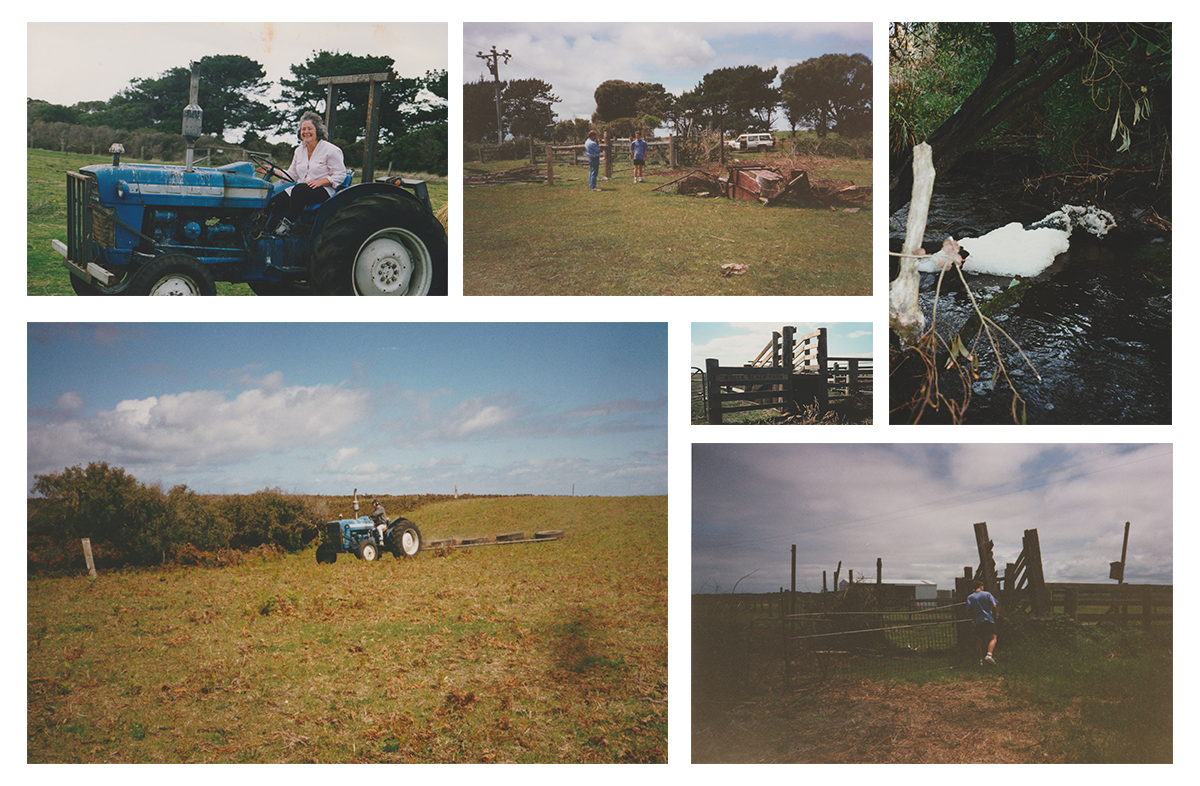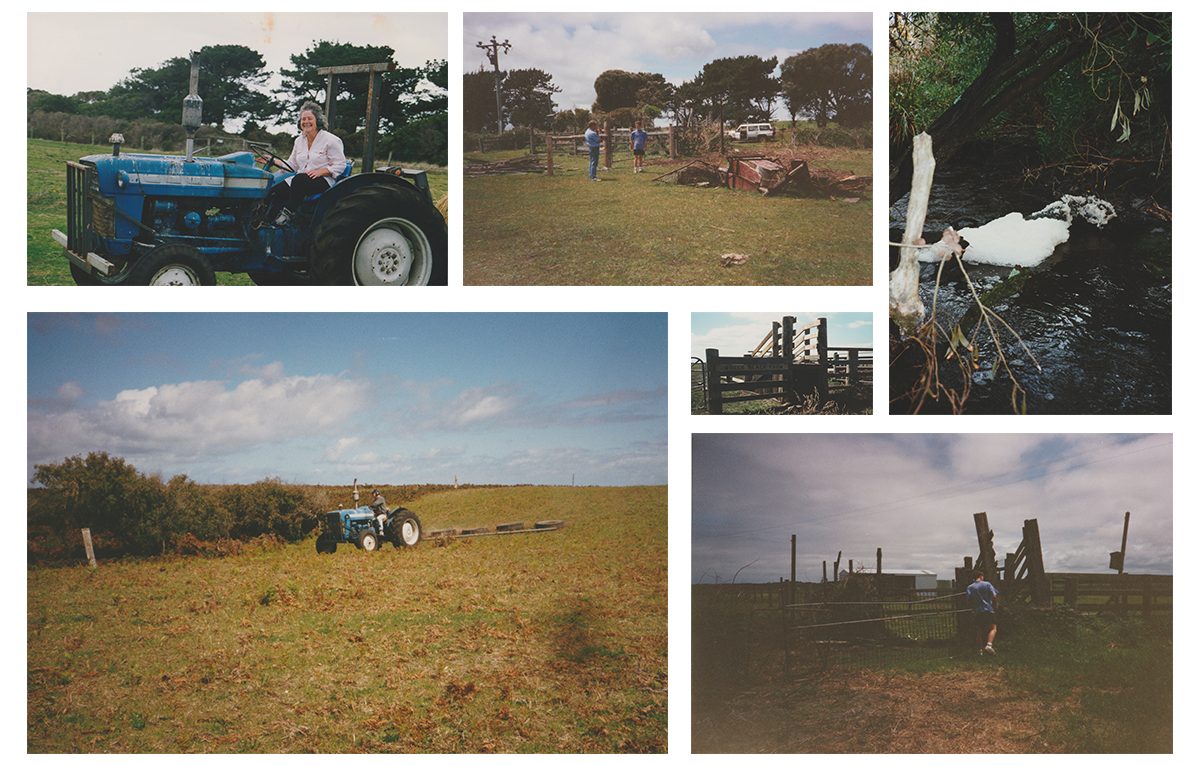Rewilding Wreck Beach Farm

Fences delineate once-open plains, tracks and trails have been tarred, diesel fumes catch on the breeze, trees have been felled and burnt, and ‘for sale’ signs accompany the front gate of every second property.
Feral predators, invasive weeds and plants have been introduced. Cloven-hooved livestock have ruined soaks and waterholes. Native wildlife is often seen as a nuisance – kangaroos loosening fence wire while grazing the paddocks, wombat burrows bogging unsuspecting tractors – to be ‘managed’ or eradicated. Due to this management, thousands of species have disappeared, while superphosphate shipped from other parts of the globe is spread haphazardly across paddocks.
This activity has provided food and a decent living for multiple generations of those who have occupied this place since white settlement. That ‘prosperity’ has been derived at an enormous cost. They are gains that have come at the expense of the damage inflicted on the natural world by exploiting and extracting other places.
Yet here on Wreck Beach Farm, large tracts have been rewilded. My family’s decision to stop grazing cattle on large sections of the property twenty-five years ago has allowed extensive regrowth of native flora. This place now provides a habitat for an abundance of native wildlife. However, the financial, cultural, and ecological costs of that regeneration cannot be ignored. Diligent care has made this place beautiful and vibrant but so too has privilege and violence. It is work that has also changed the ecology of the surronding area.
[Audio: Jim Longstaff (interviewed by Joe Chambers) reflects on catching trout and eels at Wreck Beach and how argiculture has changed the ecology of the place. Source: Wonthaggi and District Historical Society, recorded 1987.]
No matter how positive this activity is, it still bears the violent weight of systemic dispossession of the Bunurong people who have lived on, and cared for, these lands for millennia.
